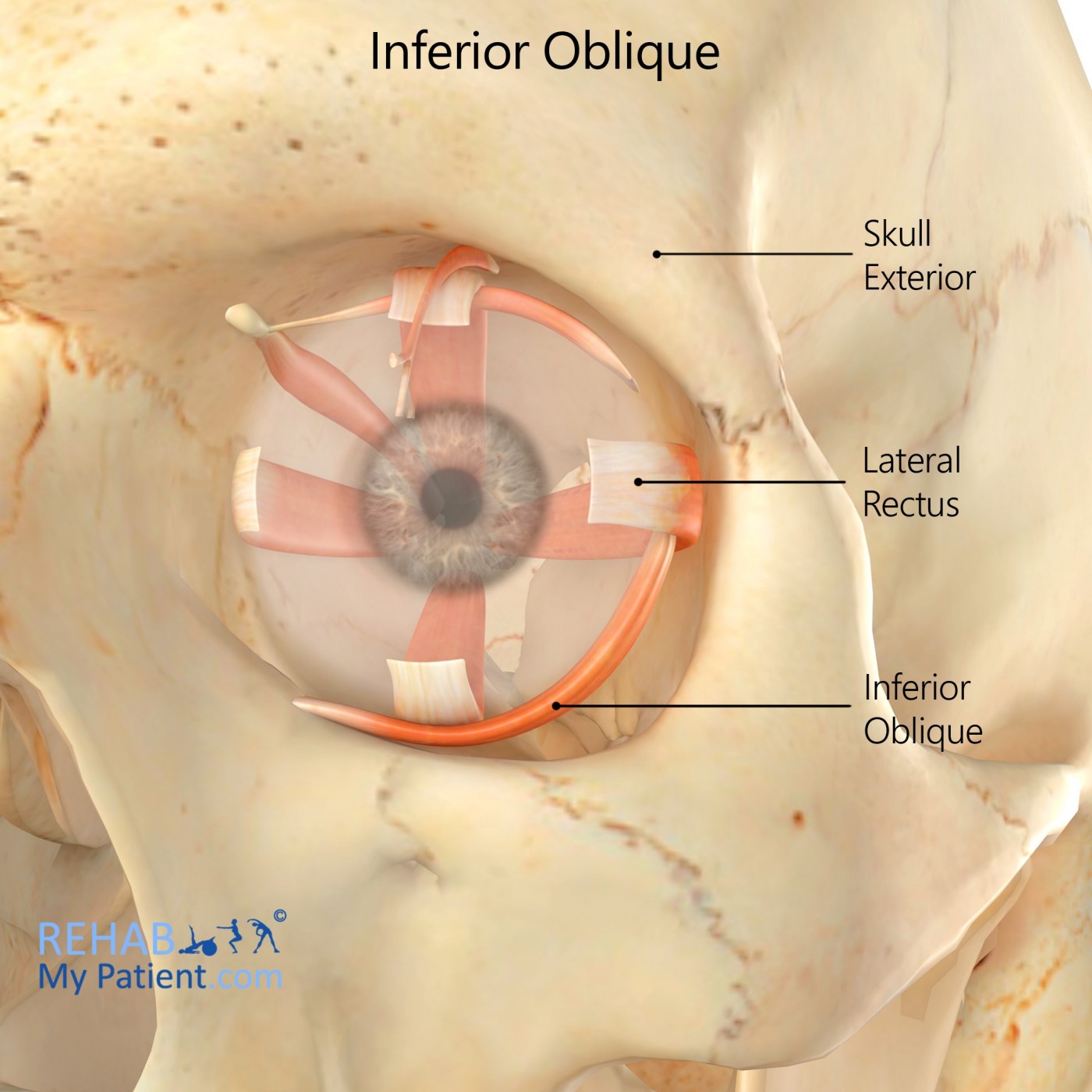Inferior Oblique
Posted on 24th Jul 2020 / Published in: Head

General information
Inferior oblique is a thin, narrow eye muscle and belongs to the group of six extraocular muscles or the orbit’s extrinsic muscles.
Literal meaning
The lower slanting muscle (of the eye).
Interesting information
Much the same as the other orbital muscles, the inferior oblique gets its name from its position in the orbit and relative to the eyeball. It sits in the orbit’s inferior region and surrounds the lower aspect of the eyeball.
Its main function is elevation and abduction of the eyeball, but like the other muscles it acts in coordination with the other muscles in the extraocular group to control eye movements, pupil position and the direction of gaze.
Origin
Orbital surface of maxilla.
Insertion
Inferolateral aspect of eyeball (deep to lateral rectus muscle).
Function
Abducts, elevates, externally rotates eyeball.
Nerve supply
Oculomotor nerve (CN III).
Blood supply
Ophthalmic artery, infraorbital artery.

Relevant research
A common presentation of strabismus (commonly known as cross eyed) is overaction in the inferior oblique muscle. This can be corrected through surgery by weakening this muscle, unilaterally or bilaterally.
Stager, D., Jr, Dao, L. M., & Felius, J. (2015). Uses of the Inferior Oblique Muscle in Strabismus Surgery. Middle East African journal of ophthalmology, 22(3), 292–297.
Inferior oblique exercises
None
Sign UP
Sign up for your free trial now!
Get started with Rehab My Patient today and revolutionize your exercise prescription process for effective rehabilitation.
Start Your 14-Day Free Trial